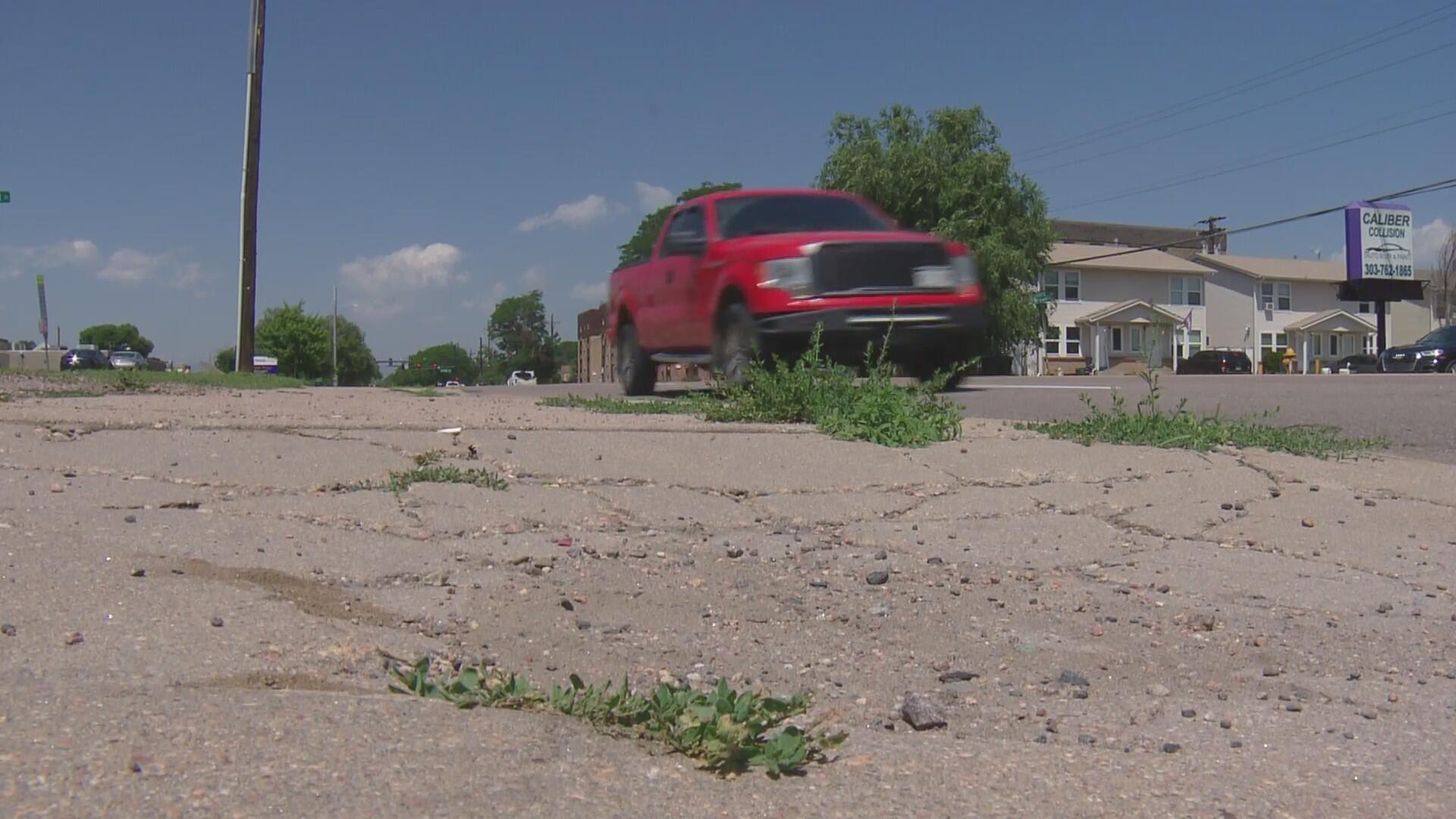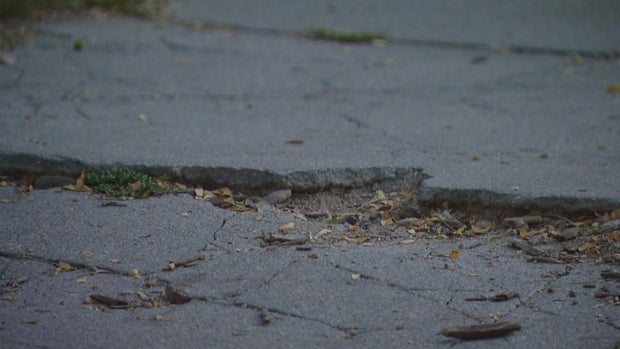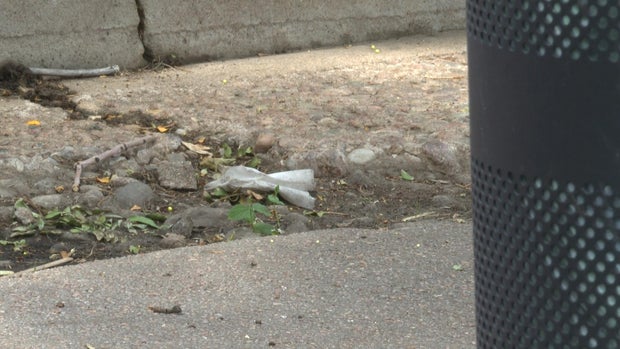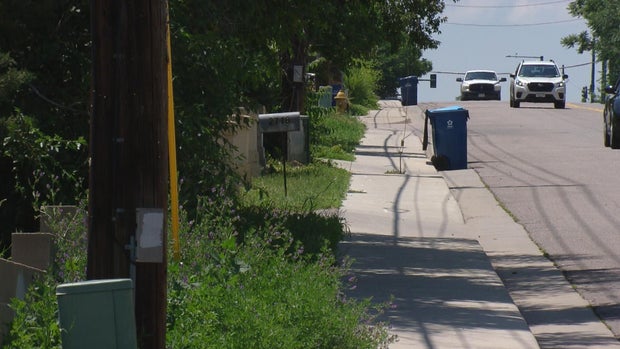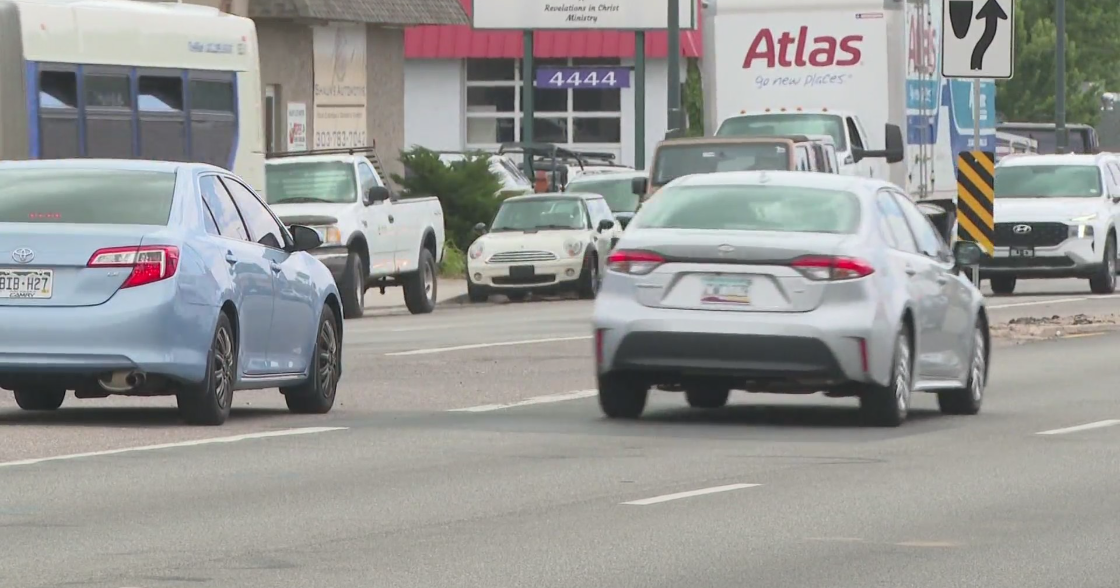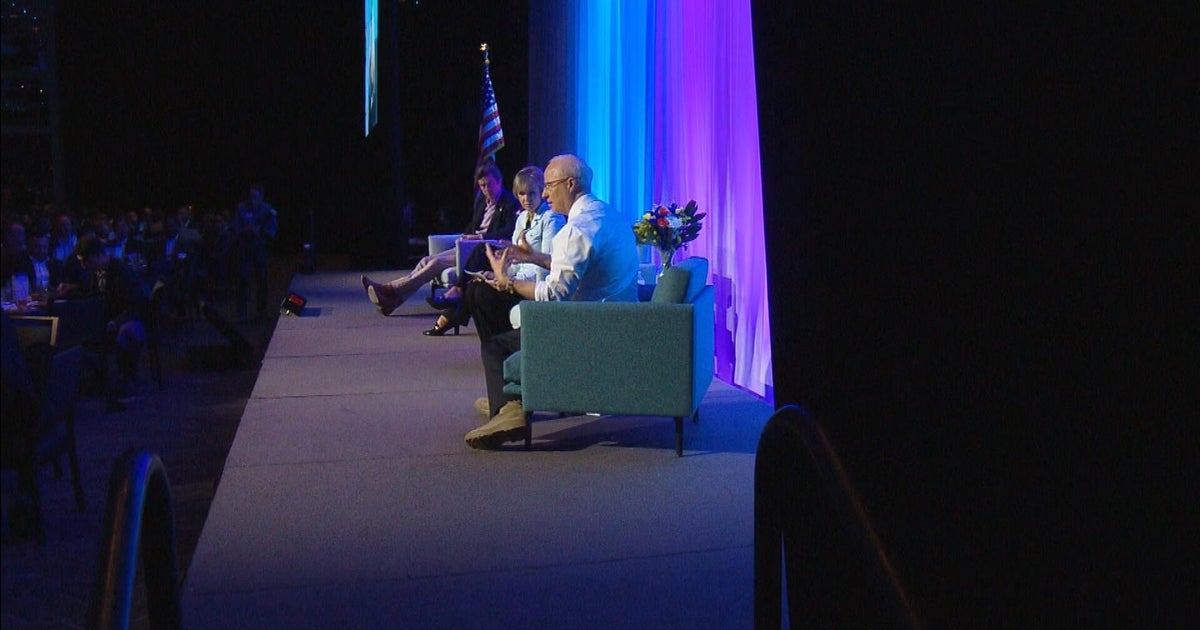Sidewalk relief coming soon to Denver neighborhoods, set to begin with $75 million contracts
From cracked pavement to missing sidewalks altogether, Denver's pedestrian issues are getting attention. And property owners are footing the bill.
Mayor Mike Johnston has announced contracts with two construction companies as part of a $75 million plan to fix the city's sidewalks. Two contracts for new sidewalk construction -- one with Milender White Construction Company for $25 million and another with SEMA Construction for $50 million -- are currently under review by the Denver City Council. These three-year agreements will allow for both new construction and upgrades to bring existing sidewalks up to ADA standards.
Denver has a total of 3,110 miles of sidewalks, with 1,235 miles -- or 40% -- considered deficient because they are less than 5 feet wide, and 358 miles -- or 11% -- completely missing.
If those contracts are approved by the Denver City Council, it could mean a major acceleration of the city's sidewalk improvement project.
In November 2022, Denver voters approved a citizen-led ballot initiative that created a citywide sidewalk program and required the city to charge property owners a fee to fund it. The goal: to repair existing sidewalks, rebuild deficient ones, and construct new sidewalks where none currently exist.
Denver has 358 miles of missing sidewalks and more than 1,200 miles that are too narrow or in disrepair.
Supporters of the initiative say sidewalks are vital to daily life, providing safe access to schools, businesses, parks, and neighbors. Because all residents benefit from a complete and connected sidewalk network, all property owners in Denver are charged an annual base fee of $150 beginning in 2025. No exemptions are offered, though income-based rebates are available.
The city anticipates raising about $97.5 million in sidewalk fees over the next three years and plans to move quickly to put that money to use. Depending on complexity, sidewalk construction can cost between $1 million and $2 million per project.
"Sidewalks are essential to our quality of life in the city, and we are now finally seeing that program starting to be implemented," said Locantore.
That funding supports projects helping people like Tim, who uses a wheelchair to get around.
"I've got diabetes, heart problems, been in and out of the hospital, had a couple of amputations, and ended up in a wheelchair. Kind of sucks and all, but you know ... I'm still alive," said Tim, a Denver resident.
The broken sidewalks make travel difficult -- and dangerous -- for people like him.
"There've been several times I've almost gotten knocked out of my chair because of the cracks or holes in the sidewalk, you know?"
But that could soon be a thing of the past.
Jill Locantore leads the Denver Streets Partnership -- the group behind the Denver Deserves Sidewalks initiative.
"It's exciting that this is the first year the city is collecting the sidewalk fee from property owners -- and they're already starting to make changes on the ground," said Locantore.
The goal is to repair damaged sidewalks and construct new ones in areas that previously lacked them.
This month, residents can expect to see the first repairs begin. By year's end, new sidewalks will begin construction.
It's all about making sure people like Tim -- and everyone else -- can move safely through their neighborhoods.
"If the sidewalks are substandard or severely damaged, that creates severe safety issues and limits the ability of people to move around their neighborhoods."
The construction contracts now head to the full Denver City Council for consideration.
Planned sidewalk construction in 2025-2026 includes:
- Sloan's Lake neighborhood
- Sheridan Blvd., from W. Colfax Ave. to W. 17th Ave.
- Green Valley Ranch
- Tower Road, from Peña Blvd. to E. 72nd Ave.
- Harvey Park
- W. Evans Ave., from S. Patton Ct. to Osceola St. (north side)
- Globeville / Elyria-Swansea
- Cherokee St., E. 43rd to E. 44th (east side)
- Delaware St., E. 42nd to E. 44th (west side)
- Delaware St. at E. 43rd Ave. (east side)
- Fillmore St., E. 50th to E. 51st
- Milwaukee St., E. 51st to E. 52nd
- E. 43rd Ave., Delaware to alley
- E. 43rd Ave., Delaware to Cherokee (north side)
- E. 44th Ave., Pearl to Sherman
- E. 51st Ave., Fillmore to Milwaukee
- E. 52nd Ave., Monroe to Cook
Denver has also allocated $3.4 million this year for sidewalk repairs, under a separate contract approved by City Council in spring 2025. Unlike new construction, sidewalk repairs are not performed on demand.
DOTI is developing a sidewalk repair plan using data from 3-1-1 reports. Repairs will be prioritized based on severity and grouped by neighborhood to maximize efficiency.
Repair work is expected to begin in late July or early August, weather permitting.
According to the Denver Department of Transportation and Infrastructure, initial areas include:
- Sloan's Lake: Between W. 26th and W. 20th Avenues, Stuart St. to Lowell St.
- Berkeley: Between W. 38th and W. 44th Avenues, Sheridan Blvd. to Tennyson St.
- Capitol Hill: Between E. Colfax and E. 11th Avenues, Washington St. to Franklin St.
DOTI began billing property owners in January 2025. The fee is included in the city's stormwater bills, which are issued twice a year -- with half the sidewalk fee billed each time.
In 2025, property owners with 230 linear feet or less of public-facing property will pay the $150 flat rate. About 95% of all Denver properties -- and 99% of single-family homes -- fall into this category.
Owners with more than 230 linear feet of frontage pay an additional "impact fee" of $3.50 per foot beyond the 230-foot threshold. Residents can calculate their specific fee using an online tool at denvergov.org/sidewalks.
With sidewalk fee funding now coming in, DOTI has hired a program management team to establish the framework for the sidewalk initiative. This includes setting benchmarks, tracking projects, developing cost estimates and creating a comprehensive policy inventory.
A Sidewalk Implementation Plan, required under the ordinance, is being developed this summer. It will guide the sidewalk program over the next five years and outline when, where, and how sidewalks will be built. The plan will also address complicated repairs -- such as those involving tree roots or historic flagstone -- and will establish standards and procedures for construction and maintenance.
Public engagement will be a key part of the planning process. Residents will help shape how priorities are set and how limited funds are allocated.

